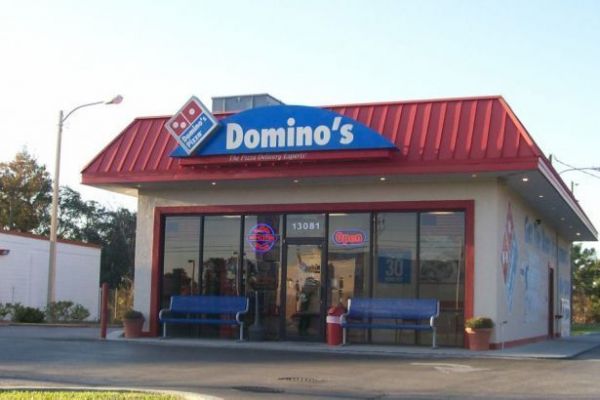Domino's Pizza Inc has reported its slowest US same-store sales growth in at least three years in the second quarter, raising doubts about its strategy for fighting off competition from delivery apps.
UberEats, DoorDash and GrubHub Inc have all pushed into the delivery business.
The company has responded with a strategy it calls "fortressing", which aims to speed up delivery times by opening more stores near existing ones.
That, however, has come at a cost - a hit to sales at its existing outlets that last year knocked up to 1.5 percentage points off same-store numbers.
In the second quarter of 2019, total US same-store sales rose just 3%, below estimates and the slowest growth in at least three years.
Comparable sales at company-owned US outlets grew 2.1% while those at US franchise stores rose 3.1% in the quarter that ended on June 16. These figures were also both below expectations while those in international markets were up 2.4%, in line with expectations.
Bernstein analyst Sara Senatore said comparable sales of 3% was at the low end of the company's long-term targets for the United States.
"[This] will not refute the bear case that structural factors - better pizza competition, growing aggregators, and market splits - have fundamentally changed the rate and composition of Domino's growth," she said.
Total Revenue And Net Income
Total revenue rose 4.1% to $811.6 million in the quarter, also below expectations of $836.6 million.
Net income rose to $92.4 million, or $2.19 per share, from $77.4 million, or $1.78 per share, a year earlier.
Analysts had expected the Ann Arbor, Michigan-based company to earn $2.02 per share.
Cowen & Co analyst Andrew Charles said Domino's needed to make clear to investors what the impact of the fortressing strategy would be on same-store sales this year if it wanted to head off a further decline in confidence.
"Failure of the company to address this could lead to the bear narrative around infringement from third-party delivery to dominate, and thus place shares in the penalty box," he said.
News by Reuters, edited by Hospitality Ireland. Click subscribe to sign up for the Hospitality Ireland print edition.









